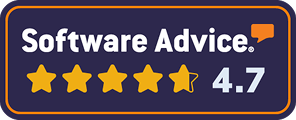Career breaks have become an increasingly common feature in professional journeys. Whether due to family responsibilities, health concerns, educational pursuits, or intentional sabbaticals, time away from traditional employment no longer carries the stigma it once did. However, the question remains: how do you effectively explain these periods when they inevitably come up in job applications and interviews?
This comprehensive guide will equip you with proven strategies to confidently address career gaps, transforming what might be perceived as a liability into a demonstration of growth, resilience, and unique perspective.
{{quick-link-3="/sandbox/home-v3"}}
The Resume Gap Question Is Coming: Here's How to Ace It
That awkward moment when the interviewer glances at your resume and asks, "I notice there's a gap here between 2022 and 2023. Could you tell me about that?" or "Can you explain this gap in your resume?"
Your heart races. Your palms sweat. But it doesn't have to be this way.
Career gaps are increasingly common, with McKinsey & Company reporting that up to 47% of professionals under 25 have taken intentional breaks of six months or more.
This comprehensive guide will show you exactly how to answer when asked to explain the gap in your resume, whether it's in an interview, on application forms, or in networking conversations. You'll learn how to transform potential red flags into compelling stories of growth and use psychology-backed techniques to address interviewer concerns.
Quick Answer: Be honest about your gap, emphasize skills gained during this time, address potential concerns proactively, and connect your experiences directly to the job requirements.
Related Articles:
- Tell Me About a Time You Failed
- What Is Your Greatest Strength
- What Are Your Salary Expectations
- Why Should We Hire You
- Why Do You Want to Leave Your Current Job
- What Is Your Leadership Style
- How Did You Hear About This Position
- Tell Me About Yourself in a Job Interview
Why Do Hiring Managers Ask About Resume Gaps? (Understanding Their Psychology)
Before crafting your answer to explain your career break, it's crucial to understand what's really behind this question. When a potential employer asks you to justify your career gap, they typically have four main concerns:
1. Skills Deterioration Concerns
They worry your technical knowledge and industry expertise have become outdated, especially in rapidly evolving fields. This concern becomes more pronounced when wondering how long of a resume gap is too long, typically gaps exceeding 6-12 months raise more questions about skills currency.
2. Commitment Questions
They're assessing if you're truly ready to jump back in and stay committed long-term. Hiring managers often want to know if your career break has resolved whatever pulled you away from the workforce previously.
3. Hidden Red Flags
They want to ensure there aren't underlying issues like being terminated for cause or workplace conflicts. This is why being prepared with the best answer for a career gap is essential, transparency builds trust while strategic framing prevents misinterpretation.
4. Cultural Alignment
They're evaluating if how you spent your time aligns with company values (family priorities, personal growth, etc.). This is where explaining your career break on your CV thoughtfully can actually turn a perceived weakness into a strength.
Also read: What are functional resumes?
The Perfect Formula: 7-Step Framework for Explaining Resume Gaps
If you're unsure how to write a gap explanation that resonates with employers, follow this proven framework to create a compelling narrative around your career gap:
Step 1: Be Transparent About the Gap's Reason
Begin with brief, honest context without oversharing personal details. When mentioning a career gap in your resume or during interviews, clarity prevents speculation.
✅GOOD EXAMPLE:
"After my previous marketing role, I took an 18-month break to care for my parent during a serious illness. This was a planned, temporary departure from my career."
❌BAD EXAMPLE:
"It's been really hard to find a job in this economy, so I've just been unemployed for a while."
Step 2: Highlight Skills Developed During Your Time Off
Transform your gap into a period of growth by emphasizing relevant skills acquired. This approach is particularly effective when explaining how to justify your career gap to potential employers.
✅GOOD EXAMPLE:
"During this period, I strengthened my project management abilities by organizing my parent's medical care across multiple specialists. I also maintained my digital marketing skills by volunteering to manage social media for a local nonprofit, increasing their engagement by 34%."
❌BAD EXAMPLE:
"I mostly just took care of things at home and relaxed a bit."
Suggested: FREE Resume Templates For Each Job Title
Step 3: Demonstrate Industry Engagement
Show how you stayed connected to your field even while not formally employed. This is crucial when explaining gaps in employment, as it addresses concerns about your industry knowledge becoming outdated.
✅GOOD EXAMPLE:
"I made it a priority to stay current in the tech industry by attending monthly developer meetups, completing three advanced Python certification courses, and contributing to two open-source projects on GitHub."
❌BAD EXAMPLE:
"I haven't really been keeping up with industry changes, but I'm sure I can catch up quickly."
Step 4: Showcase Additional Professional Development
Highlight any formal or informal learning that demonstrates your commitment to growth. When figuring out how to best explain gaps in employment, emphasizing continued education shows initiative.
✅GOOD EXAMPLE:
"I used my evenings to complete HubSpot's Content Marketing Certification and took a data analytics workshop that taught me advanced Excel and SQL skills that I've already applied to personal projects tracking market trends."
❌ BAD EXAMPLE:
"I watched some YouTube videos about work stuff when I had free time, but I didn't really complete any actual courses or anything formal."
Step 5: Explain Your Transition Back
Articulate why now is the right time for your return and demonstrate enthusiasm. This is particularly important when writing a CV after not working for years.
✅GOOD EXAMPLE:
"With my family situation now stable and my caregiving responsibilities reduced, I'm excited to redirect my full energy back to my professional passion in digital marketing. I've carefully selected companies like yours that value both results and work-life integration."
❌ BAD EXAMPLE:
"I need a job now because my savings ran out. Any company will do at this point, I'm not picky."
Step 6: Connect Your Experience to the Role
Draw direct lines between your gap experience and job requirements. This strategy works well when explaining a career break on your CV or in cover letters.
✅GOOD EXAMPLE:
"The crisis management skills I developed during this period directly relate to the fast-paced environment described in your job posting. Having to coordinate multiple priorities with limited resources has made me even more efficient and adaptable than I was in my previous role."
❌ BAD EXAMPLE:
"I don't really see how my time away relates to this job, but I'm sure I can figure things out once I start working here."
Step 7: Address Potential Objections Proactively
Anticipate concerns and tackle them head-on with confidence. Being prepared to answer "Can you explain this gap in your resume?" with confidence makes a significant difference.
✅GOOD EXAMPLE:
"You might be wondering if my technical skills are current after my time away. In anticipation of returning to work, I've completed refresher courses in the latest SEO algorithms and Google Analytics 4, ensuring I'm fully up-to-date with current best practices."
❌ BAD EXAMPLE:
"I know my skills might be outdated, but how hard can it be to catch up? I'm sure things haven't changed that much since I've been gone."
How to Document Career Gaps on Applications and Profiles
Resume Strategies
When figuring out where to add a career break in a resume, consider these approaches:
- Use years instead of months if the gap is short
- Consider a functional resume format that emphasizes skills over chronology
- Include valuable non-employment activities in your experience section:
1. "Independent Professional Development, 2022-2023"
2. "Freelance Consultant, 2021-2022"
3. "Caregiver & Professional Development, 2023-2024"
Cover Letter Approach
Knowing how to explain a gap in your resume in a cover letter requires a delicate balance. Address it briefly in one paragraph:
"Between 2022-2023, I made the deliberate decision to step away from full-time employment to complete my MBA, which equipped me with advanced data analysis and leadership skills directly relevant to this Senior Analyst position. Throughout this educational period, I applied these emerging skills through pro bono consulting work with local businesses."
Read More: Career Building Cover Letters: The Ultimate Checklist for 2026
LinkedIn Optimization
For professionals wondering how to put a career break on their CV or LinkedIn profile:
- Create a position for your gap period that highlights activities and skills
- Use recommendations from volunteer work or courses during your gap
- Publish articles related to your field to demonstrate continued engagement
Final Thoughts: Turning Your Gap Into Your Competitive Advantage
Your career gap doesn't define you, how you frame it does. With the strategies outlined in this guide, you're now equipped to confidently answer the question "Can you explain the gap in your CV?" in ways that highlight your unique journey and the value you bring.
Take these actions today:
- Draft your gap explanation using our 7-step framework
- Practice delivering it confidently with a friend or mentor
- Update your documents using our documentation strategies
- Prepare for follow-up questions by reviewing common concerns
Remember, today's workforce increasingly recognizes that taking time away from traditional employment, whether for family, health, education, or personal growth, often results in more well-rounded professionals with valuable perspective and renewed energy.













